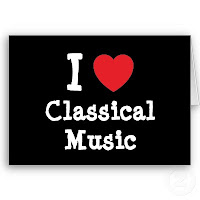When people talk about "Classical music," they often use the term to broadly mean anything not modern. I admit, it's a little pet peeve of mine. But then, I sometimes do it myself. After all, it is rather hard to tell if someone is pronouncing something with an upper- or lower-case first letter.
The funny thing is, if you call pre-modern music classical music, you are using correct terminology. But Classical music... well, that's a different matter entirely! The capital "C" changes the word from a broad one to a specific term indicating music from the Classical period of Western music, which occurred between 1750 and 1830.
The 18th century opened with the introduction of the pianoforte by Bartolomeo Cristofori (immortalized in the musician's catchphrase "I've got a date with Cristofori," used by pianists who have to go practice). This new invention opened the way for the music of the Classical period. This period had many famous composers in it, such as Haydn, Mozart, Clementi, Schubert, Salieri, C.P.E. Bach, and Beethoven. It brought about great works such as "Die Zauberflöte," "Solfeggietto," "Der Erlkönig" and "Fur Elise," to name a few. Many of these people were pioneers in their work. Beethoven, with his increasing deafness, dramatic music, and brilliance mixed with borderline insanity, finally pioneered the Classical period out of existence as the strict and orderly music of the 18th century slipped away into the wild Romanticism of the 19th century, paving the way for greats such as Johannes Brahms, Frederic Chopin, and Franz Liszt.
Sure, the Classical period is gone and often forgotten as such, but the music lives on under the general head of "classical music." And, if that means the true Classical music, such as "The Marriage of Figaro" and "Sonata Pathetique" get lumped in with other greats such as "La Campanella," "The Little Dog Waltz," "Un Sospiro," "Rhapsody on a Theme by Paganini," and "Rhapsody in Blue" ... well, so much the better!
And, since I love audio-visual stuff and I'm a fool for Rachmaninoff... here's a representative sample of what I consider to be one of the greatest classical (with a lower-case "c") works of all time:



No comments:
Post a Comment